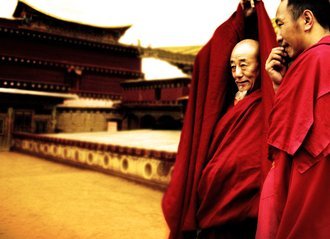Religions have proliferated across the world for thousands of years. From Buddism to Islam, whole societies and civilizations have been created around the concept of religion. But what is the place of religion in the modern world? While too many in Western Europe, and to some extent the United States, it might seem like the role of religion is an ever diminishing one – that’s not the entire picture. In the Middle East, Asia and South America religion remains strong and in some cases a growing movement.

For thousands of years, Christianity was the dominant religion in the world and while it might seem like society is rapidly becoming more secular, there are still reported to be 2.4 billion Christians in the world today – almost a third of the world’s population. What seems to be happening is that while Christianity is dying out in Europe it is flourishing in other localities such as Latin America and also in Africa. Despite the fact that Christianity appears to be a robust religion, it is far from being the fastest growing. That falls to Islam. While Islam is the second biggest religion in the world with 1.8 billion followers, the high birth rate in Muslim dominant countries means that it is growing faster than any other religion on earth. Other religions such as Buddhism are also expected to decline as the birth rates in far eastern countries such as China and Thailand slow down and the economy grows and more people middle class.
People often cite the rise of atheism as the main reason that religion is in decline in the 21st century. However, though kry.care it seems that this is the case, it doesn’t tell the whole story. In fact, the percentage of the population who consider themselves to be atheist is set to decline in the coming years. In real terms, the numbers are set to increase but when compared to the number of people who have a religion the percentage will, perhaps surprisingly, fall.
While religion does not look set to be going anywhere any time soon, out societies do feel less religious – and with good reason. While religion used to be something which dominated the spheres of politics and public life, it has since ebbed away from the forefront of discourse and is something which is practiced largely in private. Practices such as theocratic rule and religious schools are falling, with people retracting their religious beliefs from public life. Religious teachings are also now absent in laws across the world, where once they held up a moral indicator by which governments would legislate in accordance with. For instance, medical practices are now free from religion with judges having the final say of issues such as blood transfusions.

